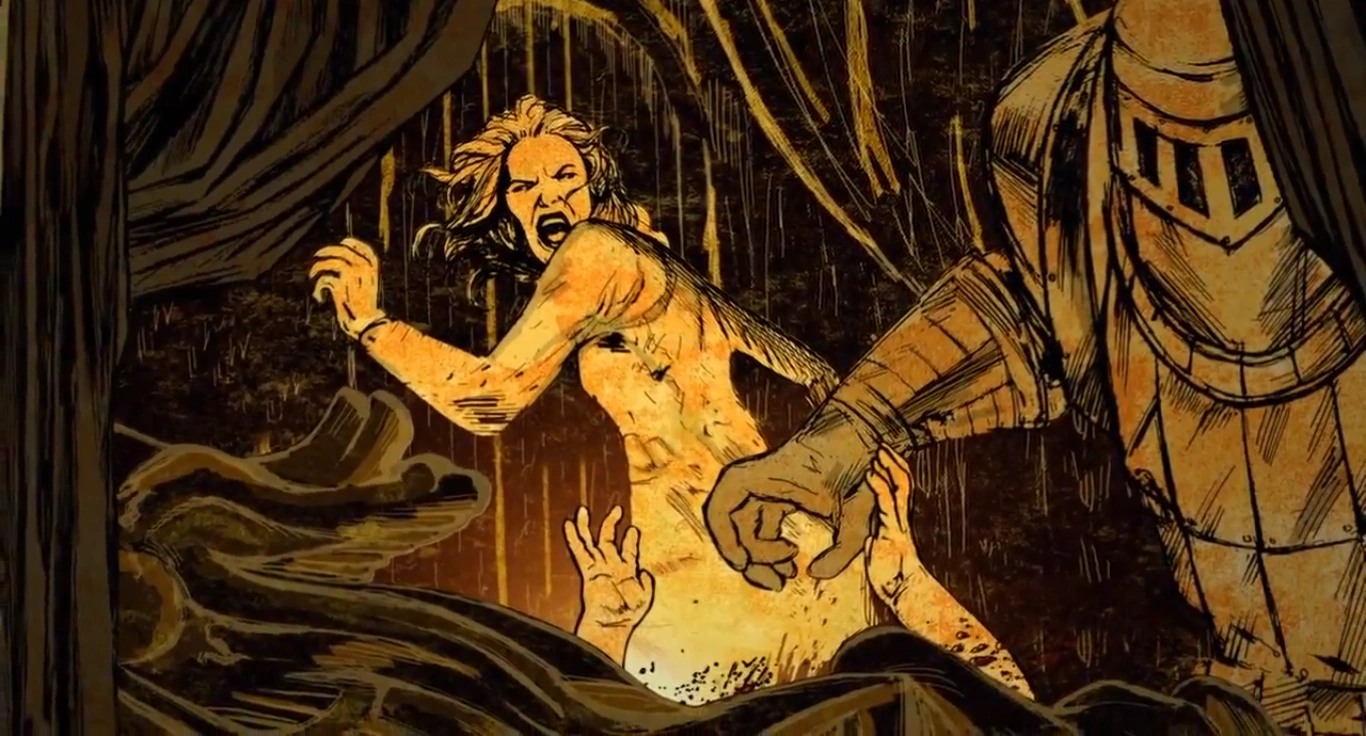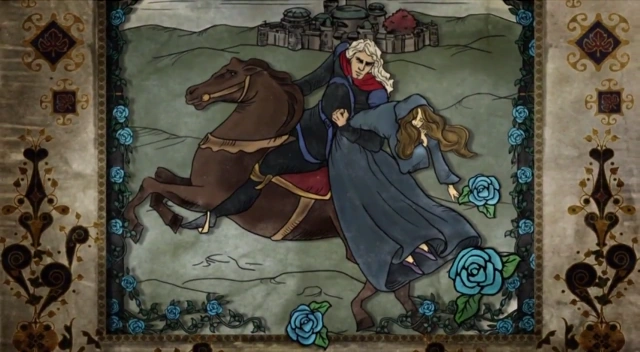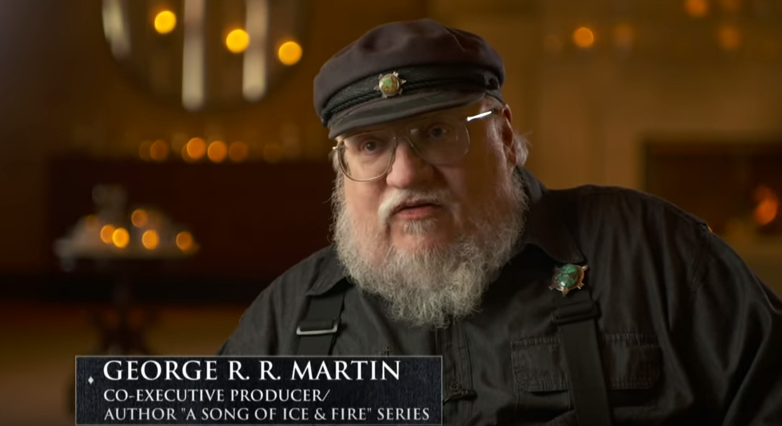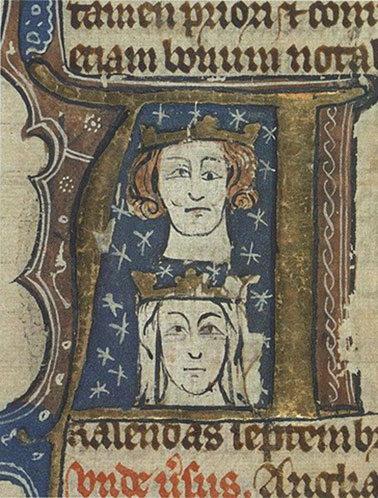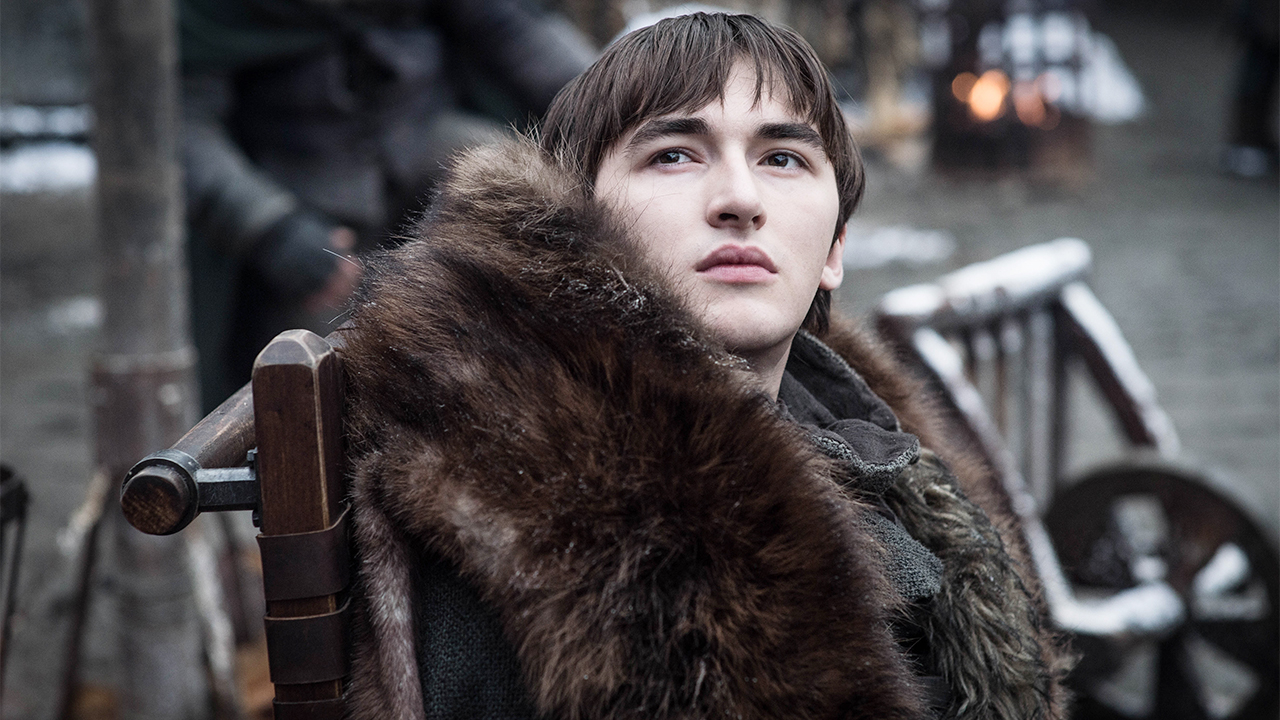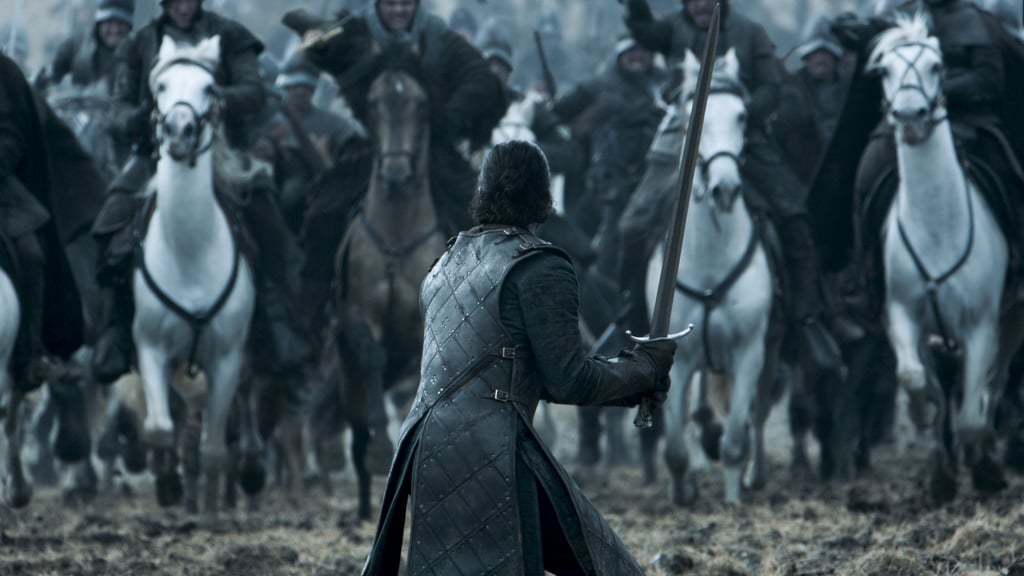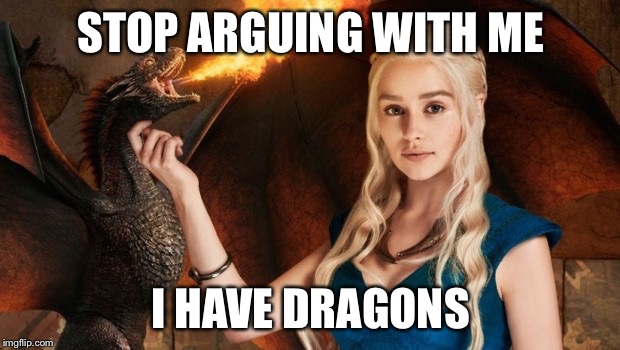
Another frequently overused term in online media discussions is the term "plot armor". As I mentioned at the beginning of this blog series, one of the main aspects of the show is that "anybody can die and nobody's safe." Let's unpack the problems with this gimmick shall we?
1) When too many likeable characters die you risk losing people's investment in the series: While it's true that Martin's novels have succeeded in getting a lot of people invested in his series, it's also true that a lot of people have been turned off by this aspect of the series. For me, the moment where I stopped caring about characters dying happened during the Red Wedding. Robb Stark's death is what hammered home to me the possibility that anybody could die and that death is no longer a shocking occurrence. This leads to the second problem of the show:
2) Death ceases to be shocking: If death is a major staple of the series then it ceases to become shocking or unpredictable anymore. When new characters arrive, the question isn't if they'll die, it's when they'll die. It no longer subverts expectations to kill characters off anymore. This is the expectation. It got to the point where fans of the show would start predicting who would die during the final season. It's one of the major calling cards of the series.

3) It has sustainability issues: In order for the plot to progress there have to be some characters still alive who can drive it. If you kill off a lot of major characters, then new ones have to replace them. What this has meant in the context of the books is that new characters get made up. This is one of the problems of the two most recent books in the Song of Ice and Fire series. New characters get made up on the fly to replace the old ones who've died off. Since these characters are new, there's no investment in them which hurts the reader's ability to care about what happens in the story.
4) Some characters get killed off pointlessly: Part of the problem with Point # 3 is that some characters get introduced during the beginning of the book only to die off in that same book without having achieved anything of consequence to the story.
____________________________________________________
Problem # 2: Does George RR Martin Actually Kill Off That Many Characters?
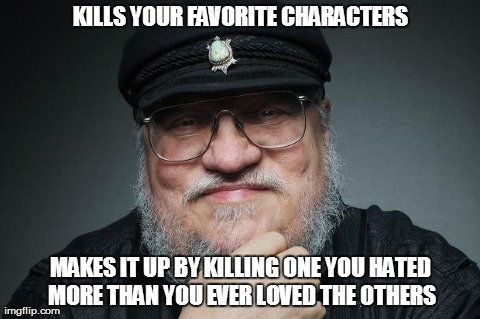
Here's a question for anyone reading this post: Out of all the major point of view characters in the novels, how many have actually stayed dead? Three. Just three. Only three point of view characters die and actually stay dead in the novels. This doesn't include throwaway point of view characters in the prologue and epilogue. The reason why I don't count them is because nobody cares about any of those characters, their deaths have zero impact as far as I'm aware.
Of the three major point of view characters the only one people cared about was Ned Stark, who died at the end of Book 1. That's basically 3 / 31 Point of View Characters who die. For an author with a reputation of ruthlessly killing off characters he sure seems reluctant to kill anybody.
Now to be fair, there are plenty of non Point of View characters that die. Robb Stark and the Red Wedding is the prime example. But here's the thing. There are WAY more characters in the books than there are in the show. Percentage wise the vast majority of the cast is still alive in the books!
One of the most knowledgeable fans of the series I've encountered explained this:
When one of the more knowledgeable and die-hard fans of the books is saying that Martin frequently plays the "gotcha" card and doesn't actually kill off that many characters then I think it's time to re-examine whether George RR Martin actually deserves the reputation he got.“If anything, at this point, he hasn't killed off enough characters and as a result, the "cast" is getting a little too sprawling and unwieldy. In general though he doesn't kill off as many major characters as you'd expect. For every Ned and Robb there's a Mance (who in the books isn't actually dead) or a Catelyn (who turns into Lady Stoneheart) or a Davos (who was fake-executed). GRRM plays the "gotcha" card so much with fakeouts and resurrections a lot of us have a rule where we don't believe someone is dead unless we see a body. (The exception: Syrio Forel.)”
This is actually something that the show does better than the books. The show actually killed off a higher percentage of its cast than Martin did. The show-runners earned the "kill'em all" reputation. The books on the other hand don't deserve this when you actually apply a little bit of scrutiny to them. So once again, the series fails to live up to its reputation.
Anti-War Messaging Problems
John Barkmeyer posited that the series is "long on plot and short on meaning." The more I thought about this, the more I realized just how right he was. The show never even bothers to attempt to convey the themes of the book. The book however tries to convey some themes, but in my opinion it falls short of that. One of the supposedly biggest themes of the novels are that they're anti-war.
George RR Martin has gone on record stating that his opposition to the Vietnam War had a profound effect on his series:
"I was, like many kids of my generation, a hawk. I accepted that America was the good guys, we had to be there. When I got into college, the more I learned about our involvement in Vietnam, the more it seemed wrong to me. Of course, the draft was happening, and I decided to ask for the conscientious-objector status. I wasn’t a complete pacifist; I couldn’t claim to be that. I was what they called an objector to a particular war. I would have been glad to fight in World War II. But Vietnam was the only war on the menu. So I applied for conscientious-objector status in full belief that I would be rejected, and that I would have a further decision to make: Army, jail or Canada. I don’t know what I would’ve done. Those were desperately hard decisions, and every kid had to make them for himself. To my surprise, they gave me the status. I was later told – I have no way to prove this – that I was granted the status because our conservative draft board felt that anyone who applied for CO status should be granted it, because that would be punishment enough: Then it would be part of their permanent record, and everybody would know that they were a Commie sympathizer, and it would ruin their lives.
I don’t think America has ever quite recovered from Vietnam. The divisions in our society still linger to this day. For my generation it was a deeply disillusioning experience, and it had a definite effect on me. The idealistic kid who graduated high school, a big believer in truth, justice and the American way, all these great values of superheroes of his youth, was certainly less idealistic by the time I got out of college."

Now that Martin brought up his disillusionment I can see where the cynicism came from in his story. It certainly explains Sansa and Jaime's character arcs.
I find the idea of A Song of Ice and Fire to be anti-war to be a bit dubious. I'm not saying that the story is pro-war. If you were to ask people what the first thing they thought of was when it came to Game of Thrones, or The Song of Ice and Fire series, "anti-war" would most likely not be the thing that they think of.
Part of the problem is that the story doesn't really do a good enough job making war, or the battles therein, seem horrifying. The books are far more interested in political squabbling and the betrayals that happen than it ever is in examining the consequences of said war.

Almost every point of view character is nobility. The few that aren't nobles basically hang around them and only do plot relevant stuff around the nobles. We never actually get a point of view character who is
a) An actual commoner
AND
b) A commoner who isn't hanging around the nobility
As such it rings hollow when the books talk about how "the small-folk always lose when the nobles play their game" because the books fail to get the reader invested in the "small folk". The series doesn't genuinely care about the commoners so why should the reader? Commoners suffering the consequences of war only exist as window dressing to serve a ham-fisted "war sucks" narrative. To be fair, this kind of gets addressed in the later novels when a character named Brienne witnesses the destruction of the Riverlands and we get to see the devastation up close but even then it feels like a case of "too little, too late."

This anti-war message is also undercut by how sympathetic the Starks are. This is a noble family that frequently gets betrayed by their allies. They eventually lose their home and have to get it back. That counts as war, but I doubt that Martin would claim its "unjustified". I mean what's the alternative? That they roll over and accept being ruled by the Freys and the Boltons? What about the war against the Others? You know, the monsters that threaten to annihilate all of Westeros. Is fighting them a bad thing? So yeah, Martin does a great disservice to his anti-war narrative which is why I don't buy it when anybody says that its an anti-war narrative. It's not. It tries to be, but it's not.
One last point: How many major plot relevant characters die directly in battle? I can't think of any. The only time someone dies is either by their allies betraying them or at a wedding. That's it. No major character actually dies in battle. That's a HUGE missed opportunity for a series that's supposed to be big on the anti-war theme.
Final Point: Postmodernism and Rampant Cynicism

Whether George RR Martin intended it or not, his story reeks of cynicism. Any character who begins the series as having any type of bright outlook on life immediately gets their worldview crushed. This is basically Sansa Stark's story-line. It's also a major part of Jaime's arc.
Here's an interesting take I found from an outspoken critic of Game of Thrones:
"Game of Thrones, true to its postmodern bent, concludes with an overall downer, telling us how there really is nothing good, nothing heroic left in the world. And any attempts to bring it about will result in even bigger disaster, so best not to even bother trying! This kind of dismal worldview, which finds the very concept of heroism/idealism deeply threatening, where resignation and apoliticism wins the day, while betrayal, backstabbing and smart-ass cynicism are what constitutes “realistic”, has became deeply ingrained into modern American pop-culture, fueled by mass media. And it’s not difficult to see from where it originates.
You’ve risked everything you’ve had to fight in an apocalyptic war, defeat literal Army of the Dead and save the world in the process? Well, guess what: you’re even worse! This is the kind of implicit hostility to a character who, in another meta-narrative, would be hailed as a war hero, that came out of a mind which - to help myself with a quote from Epic Rap Battles - “larped his Santa Claus arse through Vietnam.” And Martin is preaching to the choir here; to whole generation(s) of Americans who grew up losing wars in which they never fought, yet also never felt the consequences of those loses. The failures of various Vietnams and Iraqs adventures left a deep-seated sense of mistrust in large segments of collective American psyche, making them view all grand narratives and attempts to fight for, and indeed to achieve anything with cynical suspicion. At the same time, because they’ve never experienced actual horrors of war and human depravity other than through mass media, they can afford the luxury to maintain this belief in a grim, dog-eats-dog, survival-of-the-fittest “reality.”
And as I mentioned before, this is the "zeitgeist" that Game of Thrones speaks to. In the USA we've become distrustful of the narrative that we're the good guys fighting for "freedom" and "justice" around the world. As the quote mentions we've lost wars, but have never lived with the physical consequences of that loss. George RR Martin is right to point out that the Vietnam War disillusioned a lot of American society.
Politicians frequently promise us all manner of good things, but then fail to live up to those promises. This is a world where distrust of the media is at an all-time high. Words like "bias" and "agenda" are constantly thrown around. In the USA polarization is a big problem. Squabbling, demonization and in-fighting are unfortunate realities of our daily political discourse.
It's a world that is profoundly cynical of a great many things. This I believe is ultimately what Game of Thrones taps into and why it became the cultural juggernaut of our age. That being said, I reject its message of cynicism and I for one feel ashamed that I ever took an interest in this profoundly disappointing work of crap. I do not buy into our current zeitgeist of cynicism. If anything, now is the time where we need to come together. Now is the time for hope...and for change.
